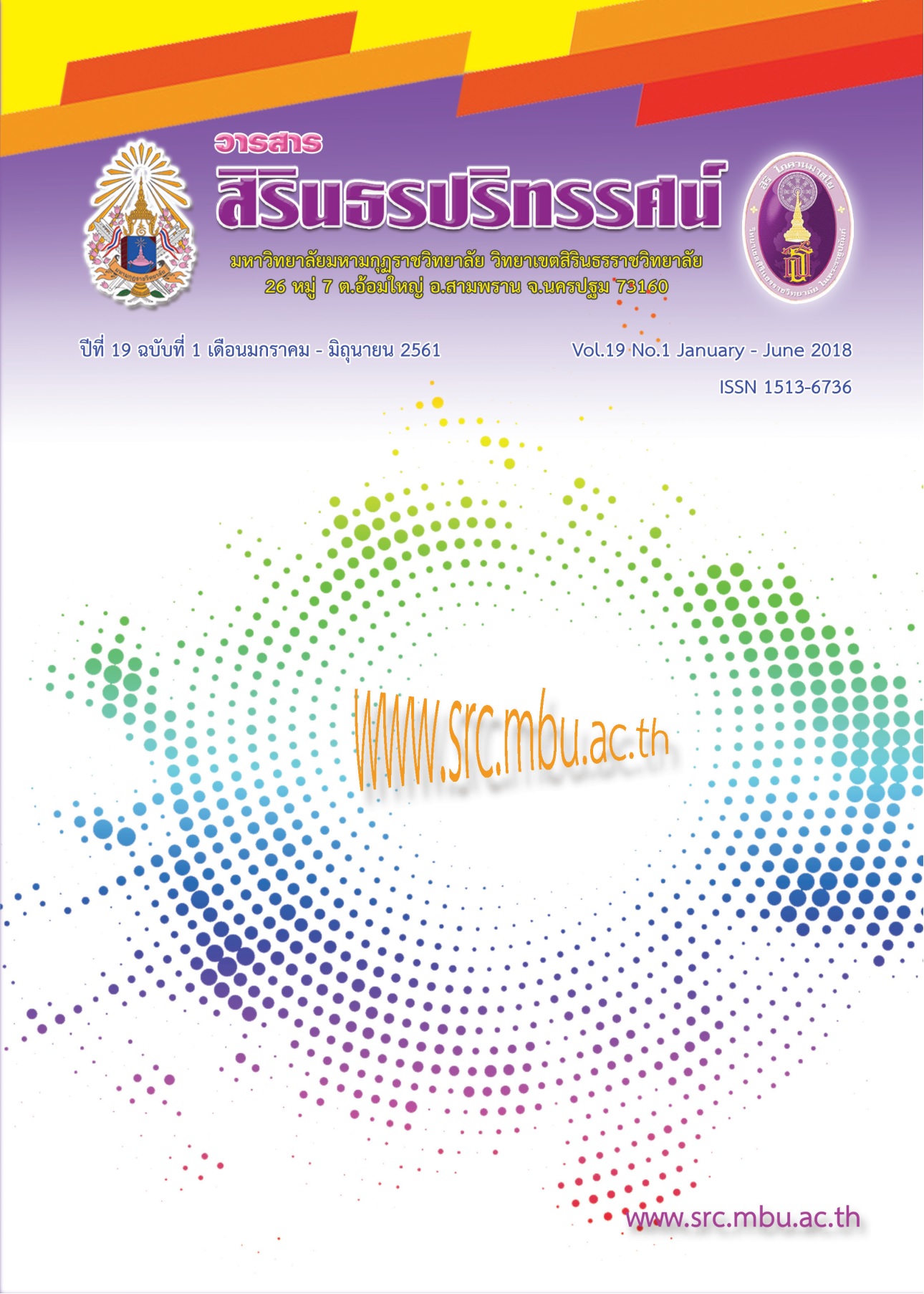Organizational management according to ethical principles in Buddhism
Keywords:
Administration, Ethics, BuddhismAbstract
Human in a society consists of different groups of people with different beliefs, habits, attitudes, and cultures, living together in the same territory. It is therefore necessary to find appropriate administration and governance in society. In order for the society to go well with peace, fairness, and harmony, there should be an implementation in the principle of appropriate administration and governance. If the principle of administration and governance are not implemented appropriately, there will be confusion, breaking up and disharmony among people in the society. Currently, proper administration and administration are needed by every society, because these are the important factor in achieving social stability and bringing society to prosperity, and well-being. In the past, the administration and governance of the government are closely related with religion; they depend on each other. Religion is the source of a single ideology. It is an important tool in maintaining the righteousness of administration and governance, and the acceptance of the people towards the rulers. Thai society has been influenced by the teachings of Buddhism in terms of administration and administration. Especially those brought from the scriptures, such as the Songkahawatthu 4, Dhodsapitrajadham, phala (energies) 5, avoidance of prejudice 4, which are the principles for the rulers, the principle for the king 49, which are also considered as the ruling principle of government officials. In the view of political sciences, it is the principle for physical and mental control, which if implemented appropriately, can will lead the right way and bring benefits to the society.
References
2.เปลื้อง ณ นคร. (2544). พจนะภาษา. กรุงเทพมหานคร : โรงพิมพ์ไทยวัฒนาพานิช.
3.พระเทพโสภณ (ประยูร ธมฺมจิตโต). (2538). ประมวลการสอนภาคทฤษฎีและภาคปฏิบัติ. พิมพ์ครั้งที่ 11. กรุงเทพมหานคร : โรงพิมพ์มหาจุฬาลงกรณราชวิทยาลัย.
4.พระธรรมปิฎก (ป.อ. ปยุตฺโต). (2538). พจนานุกรมพุทธศาสน์ ฉบับประมวลศัพท์. พิมพ์ครั้งที่ 8. กรุงเทพมหานคร : โรงพิมพ์มหาจุฬาลงกรณราชวิทยาลัย.
5.พระธรรมปิฎก (ป.อ. ปยุตฺโต). (2546). พจนานุกรมพุทธศาสตร์ฉบับประมวลธรรม. พิมพ์ครั้งที่ 11.กรุงเทพมหานคร : มหาจุฬาลงกรณราชวิทยาลัย.
6.พระพรหมคุณาภรณ์ (ป.อ. ปยุตฺโต). (2538). ธรรมนูญชีวิต. กรุงเทพมหานคร : มหาวิทยาลัยมหาจุฬาลงกรณราชวิทยาลัย.
7.พระราชธรรมนิเทศ (ระแบบ ฐิตญาโณ). (2546). ธรรมปริทรรศน์ 2. พิมพ์ครั้งที่ 4. กรุงเทพมหานคร : โรงพิมพ์มหามกุฏราชวิทยาลัย.
8.พระสิริมังคลาจารย์. (2537). มังคลัตถทีปนี แปล เล่ม 3. พิมพ์ครั้งที่ 18. กรุงเทพมหานคร : โรงพิมพ์มหาจุฬาลงกรณราชวิทยาลัย.
9.มหาจุฬาลงกรณราชวิทยาลัย. พระไตรปิฎกภาษาไทย ฉบับมหาจุฬาลงกรณราชวิทยาลัย. เล่ม 14, 15, 20, 21, 22, 24. กรุงเทพมหานคร : โรงพิมพ์มหาจุฬาลงกรณราชวิทยาลัย, 2539.
10.สมเด็จพระมหาสมณเจ้า กรมพระยาวชิรญาณวโรรส. (2511). พุทธศาสนสุภาษิต. กรุงเทพมหานคร : โรงพิมพ์มหามกุฏราชวิทยาลัย.
11.สมเด็จพระมหาสมณเจ้า กรมพระยาวชิรญาณวโรรส. (2538). สารานุกรมพระพุทธศาสนา. พิมพ์ครั้งที่ 2.กรุงเทพมหานคร : โรงพิมพ์มหามกุฏราชวิทยาลัย.
12.สมัคร บุราวาส. (2530). ทศพิธราชธรรม. กรุงเทพมหานคร : โรงพิมพ์การศาสนา.
13.หลวงพ่อทัตตชีโว, “หลวงพ่อตอบปัญหา”, อยู่ในบุญ, ปีที่ 9 ฉบับที่ 52 (กุมภาพันธ์ 2550) : 35-36.
Downloads
Published
Issue
Section
License
บทความที่ได้รับการตีพิมพ์เป็นลิขสิทธิ์ของ มหาวิทยาลัยมหามกุฏราชวิทยาลัย วิทยาเขตสิรินธรราชวิทยาลัย
ข้อความที่ปรากฏในบทความแต่ละเรื่องในวารสารวิชาการเล่มนี้เป็นความคิดเห็นส่วนตัวของผู้เขียนแต่ละท่านไม่เกี่ยวข้องกับหาวิทยาลัยมหามกุฏราชวิทยาลัย วิทยาเขตสิรินธรราชวิทยาลัย และคณาจารย์ท่านอื่นๆในมหาวิทยาลัยฯ แต่อย่างใด ความรับผิดชอบองค์ประกอบทั้งหมดของบทความแต่ละเรื่องเป็นของผู้เขียนแต่ละท่าน หากมีความผิดพลาดใดๆ ผู้เขียนแต่ละท่านจะรับผิดชอบบทความของตนเองแต่ผู้เดียว




